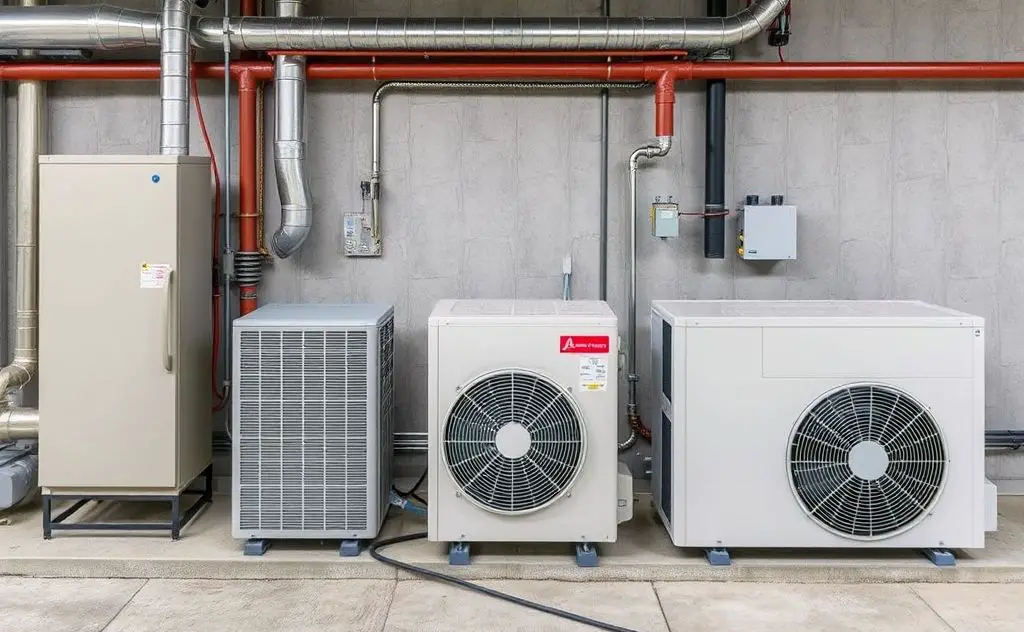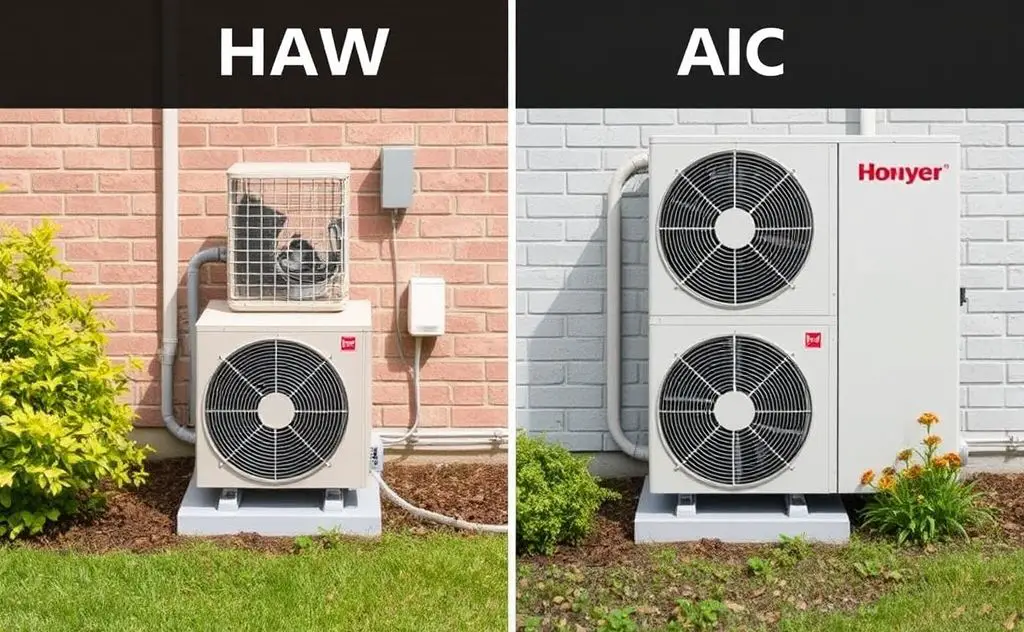HVAC (Heating, Ventilation, and Air Conditioning) encompasses all climate control systems, while AC specifically refers to air conditioning units for cooling indoor spaces.
When it comes to home comfort systems, HVAC and AC are often used interchangeably – but they’re not the same thing. Understanding the differences between these systems will help you make better decisions about your home’s heating and cooling needs.

What is HVAC?
HVAC stands for Heating, Ventilation, and Air Conditioning. It’s a complete climate control system that handles all aspects of your home’s indoor air environment. Unlike standalone AC units, HVAC systems provide comprehensive temperature regulation throughout all seasons.
Key Components of an HVAC System
- Heating Unit: Typically a furnace or heat pump that provides warmth
- Cooling Unit: Air conditioner or heat pump for cooling
- Ventilation System: Ductwork and fans that circulate air
- Thermostat: Control center for temperature regulation
- Air Filtration: Removes contaminants from circulated air
- Humidity Control: Maintains optimal moisture levels
Modern HVAC systems like built-in gas heaters can be highly efficient, especially when paired with smart thermostats for precise climate control.

What is AC?
AC stands for Air Conditioning. These systems focus solely on cooling and dehumidifying indoor air. While AC is a component of HVAC systems, it can also operate independently in simpler setups.
Types of AC Systems
| Type | Description | Best For |
|---|---|---|
| Central AC | Whole-house cooling through ductwork | Large homes |
| Window Units | Single-room cooling | Apartments, small spaces |
| Ductless Mini-Split | Zoned cooling without ducts | Room additions, older homes |
Key Differences Between HVAC and AC
Functionality
HVAC systems handle both heating and cooling, while AC units only provide cooling. This makes HVAC more versatile for year-round comfort. Some advanced electric heaters that look like wood stoves can complement HVAC systems for aesthetic heating solutions.
System Complexity
HVAC systems are more complex with multiple integrated components. AC systems are simpler with fewer moving parts. This complexity affects both installation costs and maintenance requirements.
Energy Efficiency
Modern HVAC systems often achieve better overall efficiency through integrated design. However, standalone AC units can be more efficient for cooling-only needs in warm climates.
Installation Requirements
HVAC systems typically require professional installation due to their complexity. Some AC units like window models can be installed by homeowners. Ductwork is another key difference – most HVAC systems use it, while many AC systems don’t require it.
Choosing Between HVAC and AC
Your climate is the biggest factor in deciding between these systems. In warm regions like Florida, AC-only systems may suffice. In areas with cold winters, HVAC systems provide necessary heating capabilities.
Consider these factors when choosing:
- Local climate and temperature extremes
- Home size and layout
- Existing ductwork
- Energy efficiency goals
- Budget for installation and operation
For specialized heating needs, products like indoor propane space heaters can supplement either system in specific areas.
Maintenance Considerations
HVAC systems require more comprehensive maintenance since they have more components. Regular servicing should include:
- Filter changes every 1-3 months
- Annual professional inspections
- Duct cleaning every 3-5 years
- Seasonal component checks
AC-only systems need less frequent maintenance, typically just filter changes and occasional professional servicing.
Cost Comparison
Initial costs for HVAC systems are higher due to their complexity. However, they may offer better long-term value in climates requiring both heating and cooling. AC systems have lower upfront costs but may need supplemental heating solutions in colder areas.
According to U.S. Department of Energy, proper sizing and installation are crucial for efficiency regardless of which system you choose.
Future Trends
The HVAC industry is evolving with smart technology integration and improved efficiency standards. As noted by ASHRAE, emerging technologies are making systems more adaptable and energy-efficient. AC technology is also advancing with inverter-driven compressors and eco-friendly refrigerants.
